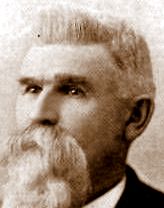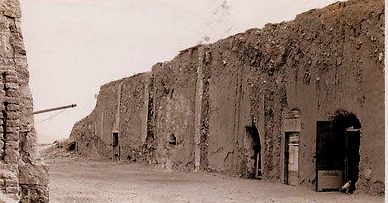Solomon Barth
Values Codes I – E – L
Solomon Barth was born in Krotoachin, Prussia (Posnan province) in 1842.
In 1855, Barth came to America, where an older brother in Grand Rapids, Michigan met him.
He made his way West as a peddler with a Mormon caravan and headed for Salt Lake City, Utah.
Solomon Barth arrived in San Bernardino, California, in 1856.
In 1862, Barth moved to La Paz on the Colorado River, where he was employed by Michael Goldwater.
In 1863, along with Aaron Barnett, Barth established a store for Michael Goldwater in Weaverville, where they catered to miners, selling general merchandise for gold dust.
In mid-1863, Solomon Barth purchased a 50-foot interest in the North extension of the Vicksburg lode claim in Weaverville.
In 1864, Solomon Barth traded salt, moving the salt from a mine in the Zuni Territory to Prescott, Arizona, passing through the territory of El Vadito.
Barth became a United States citizen in 1864 in the district court of Mohave County, Arizona.
Also in 1864, he worked as a mail carrier (pony express) between Albuquerque, New Mexico, and Prescott.
In 1866, he received a contract to carry mail between Albuquerque and Fort Stanton, New Mexico as well as Prescott to Tucson and Tubac.
In 1867, Solomon Barth settled near Cubero, New Mexico, working in freighting and merchandise. He also served as a guide to railroad survey parties.
In 1868, Barth left Cubero with a group to trade goods with the Coyotero Apaches. They were invited to trade with another tribe of Apaches, but their goods were seized by a visiting band of Chiricaha Apaches. Pedro, the Chief of the White Mountain Apaches, a friend of Barth’s, saved their lives.
In 1870, Solomon Barth became first sutler at Fort Apache.
Between 1869 and 1870, his younger brothers, Jacob, Morris and Nathan, joined him in New Mexico.
In 1873, Barth, a skilled gambler, won a poker game, earning enough money, sheep, cattle and land to secure the most important land equities and water rights in the El Vadito Valley. He changed the city’s name to San Juan or St. Johns. According to legend, he chose the name to honor Dona Maria San Juan de Baca, the first woman to settle there.
By 1877, Solomon Barth’s brothers, Morris and Nathan, joined him in business, expanding the freighting fleet to 38 Murphy wagons, with 4 yoke of oxen each.
Later, Nathan became the first sheriff of Apache County.
In 1880, Solomon Barth sold 1200 acres of un-patented land to Ammon Tenney and David Udall, making him instrumental in the Mormon settlement of Arizona.
This business transaction earned Solomon Barth 770 American Cows (worth $19,000) and $2,000 in other property. Coupled with his other livestock holdings, this cattle secured his stockyard business.
Civic
Solomon Barth was a member of the 1881 and 1897 Arizona Territorial Legislatures.
He also held the position of County Treasurer for a brief period in 1887.
In 1887, Barth was arrested and charged with “mutilating the county records” as well as forgery of county warrants.
He was sentenced to 10 years in prison in Yuma. Barth served 2 years of his sentence before being pardoned in 1889.
Family
Solomon Barth married Refugio Landavazo, daughter of Don Francisco Landavazo and Clarita Sanchez, in 1874.
Solomon and Refugio had 8 children: Isaac, Clara, Cecelia, Jacob, Maurice, Ricka, Adelaide, and Charlotte.
Isaac Barth published the St. John’s Observer for 10 years.
Solomon Barth died in 1928 in St. Johns, Arizona.
Levi Udall, son of a Mormon bishop, conducted the funeral service.
Barth is buried in Eastside Cemetery in St. Johns, Arizona.
Samantha Silver is curator of this Solomon Barth exhibit.


